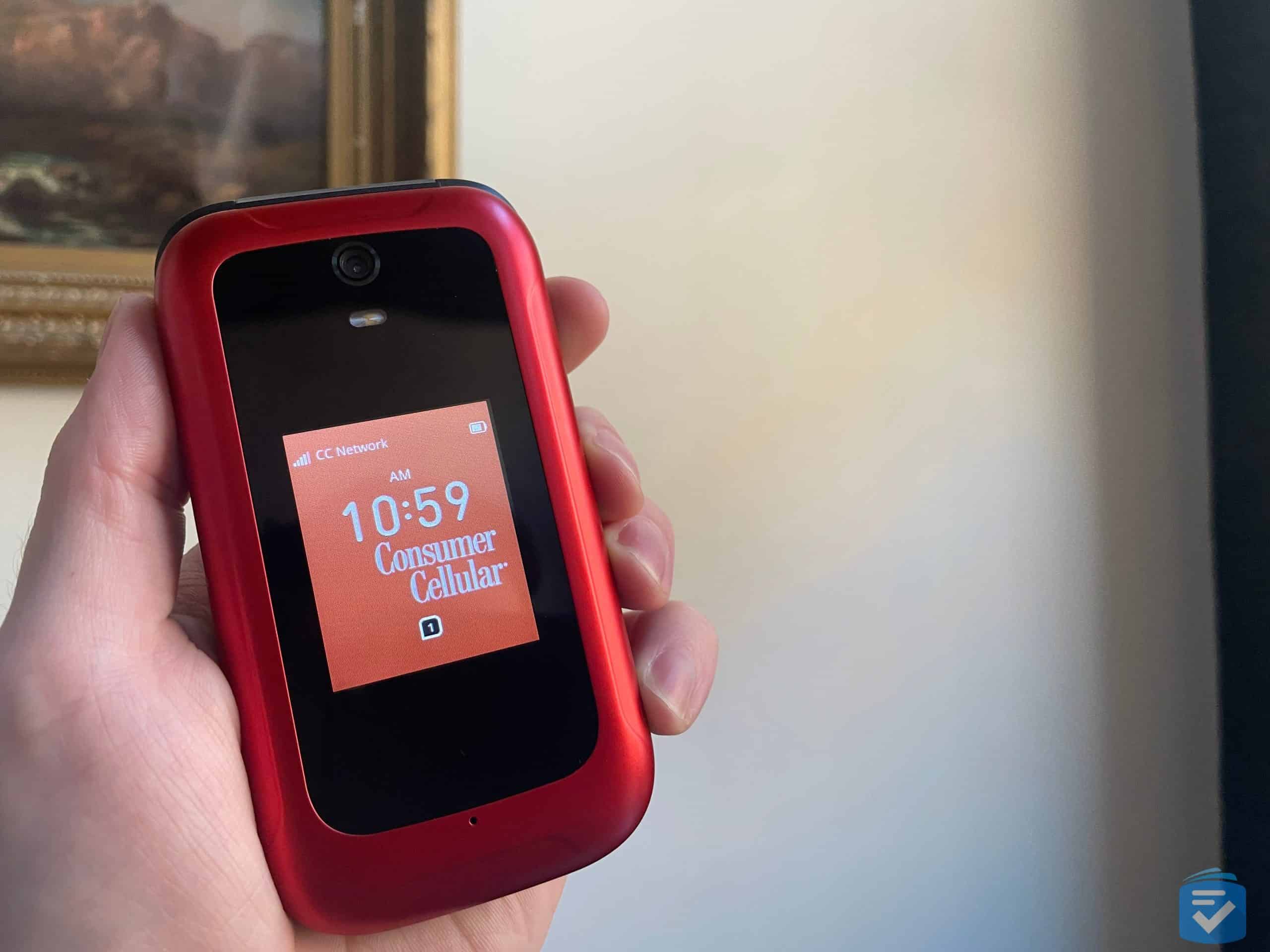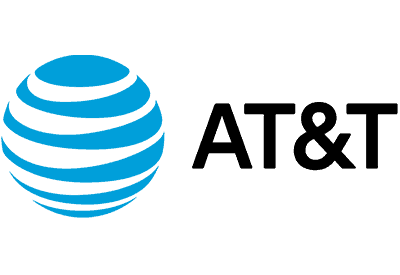Consumer Cellular vs. AT&T, Hands-On Analysis

Both Consumer Cellular and AT&T offer discounted senior plans with unlimited talk, text, and data for people ages 55 and older across the U.S. But while AT&T operates its own cellular network, Consumer Cellular leases AT&T’s. On this page, we’re comparing the plans from Consumer Cellular, both with and without an AARP membership, to AT&T’s 55 and older plan. Note, however, that there are other plans from AT&T that this article doesn’t cover, as they won’t be the cheapest for seniors.
FYI: Consumer Cellular and AT&T let you bring your own device to their networks. To find the best deals on phones, read this list of our favorite phones for seniors.


|

|
|
|---|---|---|
| Editor's Ratings | ||
| Starting Cost (One Line) | $20 per month $19 per month with AARP membership | $40 per month |
| Starting Cost for Unlimited Talk, Text, and Data | $50 per month $47.50 per month with AARP membership | $40 per month |
| Discounts for Multiple Lines | 2 lines: $65 ($32.50 each) or $60.25 ($30.13 each) with AARP membership | 2 lines: $70 ($35 each) |
| Annual Contracts | Not Required | Not Required |
| Bring Your Own Phone Option | Yes | Yes |
| Contact | ||
| Phone Number |
Call for best price:
844-580-0512 |
Call for best price:
844-418-3523 |
| Website | View Packages Links to Consumer Cellular | View Packages Links to AT&T |
Plans and Costs
AT&T now offers more affordable unlimited plans, but Consumer Cellular has cheaper plans for those who are okay with not having unlimited data. For a plan with unlimited talk, text, and 1GB of data, you’ll pay $20 per month, or $19 a month with the AARP membership. That’s half the cost of AT&T’s plan for the 55-and-up crowd.
With greater data allowances, however, come sharply higher prices. A Consumer Cellular plan with 10GB of data will cost $35 per month ($33.25 with the AARP discount); a plan with unlimited data will cost $50 per month ($47.50 with the AARP discount.) That said, no matter which plan you choose, additional lines only cost $15 each, or $12.75 for AARP members. While $50 per month may seem steep for unlimited data, two lines would only cost $65 — or $32.50 each, and that’s without that 5 percent discount. That’s cheaper than AT&T’s unlimited plan for two lines, which comes out to $35 each.
AT&T’s cell phone plan for people 55 and up has unlimited talk, text, and data for either $40 per month for one line, or $70 a month for two lines ($35 each). That’s cheaper than Consumer Cellular’s $50 unlimited plan for one line. However, keep in mind that with AT&T, the only choice with the senior discount is unlimited talk, text, and data, so you can’t save money by getting less data. Additionally, Consumer Cellular’s unlimited plan is cheaper for two lines, making it a better choice for spouses.
Also remember that, during peak hours, your speeds with AT&T will be slowed, even though your plan is with the network itself. Of course, this is also the case with Consumer Cellular’s unlimited plan, which will slow speeds after your first 50GB of data usage.
Contracts
Neither Consumer Cellular nor AT&T requires long-term contracts on its phone plans. With either provider, you can cancel your plan at any time and stop making monthly payments. That said, both providers allow you to finance the purchase of a phone; this, in a sense, can function like a long-term contract.
For example, let’s say I opened a new AT&T phone line and wished to purchase a new iPhone 16. I could either pay $23.06 per month for 36 months (automatically added to my monthly AT&T bill), or I could pay the full retail price of $829.99. If I chose the former, I could still cancel my AT&T service at any time. However, I would have to pay off the remaining balance on my iPhone.
Consumer Cellular works in a similar fashion. You can either purchase your phone at the full price upfront, or you can spread it out and add it to your monthly bill. The only difference with Consumer Cellular is that their device payment plans last two years while AT&T’s last for three.
Phones and Devices
Both Consumer Cellular and AT&T allow you to bring your own phone and use it on their network — potentially even keeping your number. To check if your phone is compatible, you’ll want to visit the provider’s website and enter your phone’s unique IMEI number.
In terms of the phones themselves, both providers offer a similar range of smartphones from Apple, Samsung, and Google. While there are some slight variations in price, most of the phones will cost the same from either provider. The iPhone 16, a user-friendly iPhone for seniors, costs about $829 from both providers. Each also offers a limited range of flip phones that cost under $100. Most notably, we had positive experiences with Consumer Cellular’s Iris Easy Flip, available for $59, as well as AT&T’s TCL Classic, available for $74.99.
Overall, Consumer Cellular and AT&T offer the same phones for the same prices. So, this will most likely not be a factor when deciding between providers.
Consumer Cellular vs. AT&T: Coverage
Consumer Cellular is a mobile virtual network operator (MVNO), meaning the company leases its network from other providers. Mint Mobile and Cricket Wireless are two other popular MVNOs.
Consumer Cellular uses both T-Mobile and AT&T’s networks. There is a downside to that, though: During times of peak usage, AT&T and T-Mobile may prioritize their own subscribers. This results in decreased data speeds for Consumer Cellular users. That said, AT&T will slow down the speeds of its 55-and-over plan subscribers during peak hours, so this may not factor into your decision.
Our Favorite
If you’re 55 or older, then both AT&T and Consumer Cellular are reliable options with reasonable prices. However, if you want unlimited talk, text, and data, you can save money on one line with AT&T, while people who are comfortable having limited data, or couples who want unlimited data, can save money with Consumer Cellular.
If you want to use your smartphone to stream videos and browse the internet, AT&T is likely the better option. If you only need a phone for talk, text, and some occasional data usage, Consumer Cellular will do the job.
To compare these providers with our other favorites, read our guide to the best phone plans for seniors.


